Virtual Tour Banguladesh
A series of virtual tours of Bangladesh. There tours are created based on 360 degree photos. You may view and visit the tour from computers, tablets, or smartphones. These tours are optimized for the virtual reality (VR) headsets.
Nasir Khan Saikat and his team created these virtual tours.
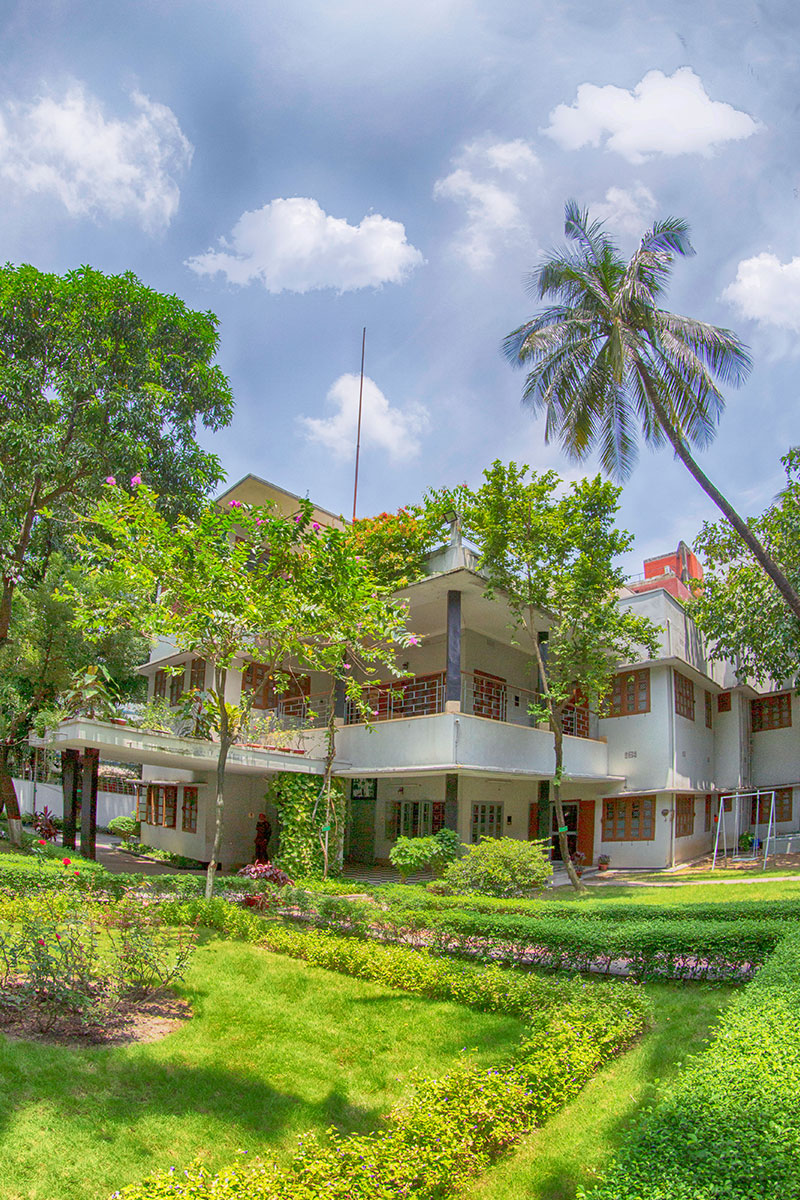
Bangabandhu Memorial Museum
This museum located in Dhaka, Bangladesh. The Bangabandhu Memorial Museum is also known as the Father of The Nation Bangabandhu Sheikh Mujibur Rahman Memorial Museum.
Visit virtual tour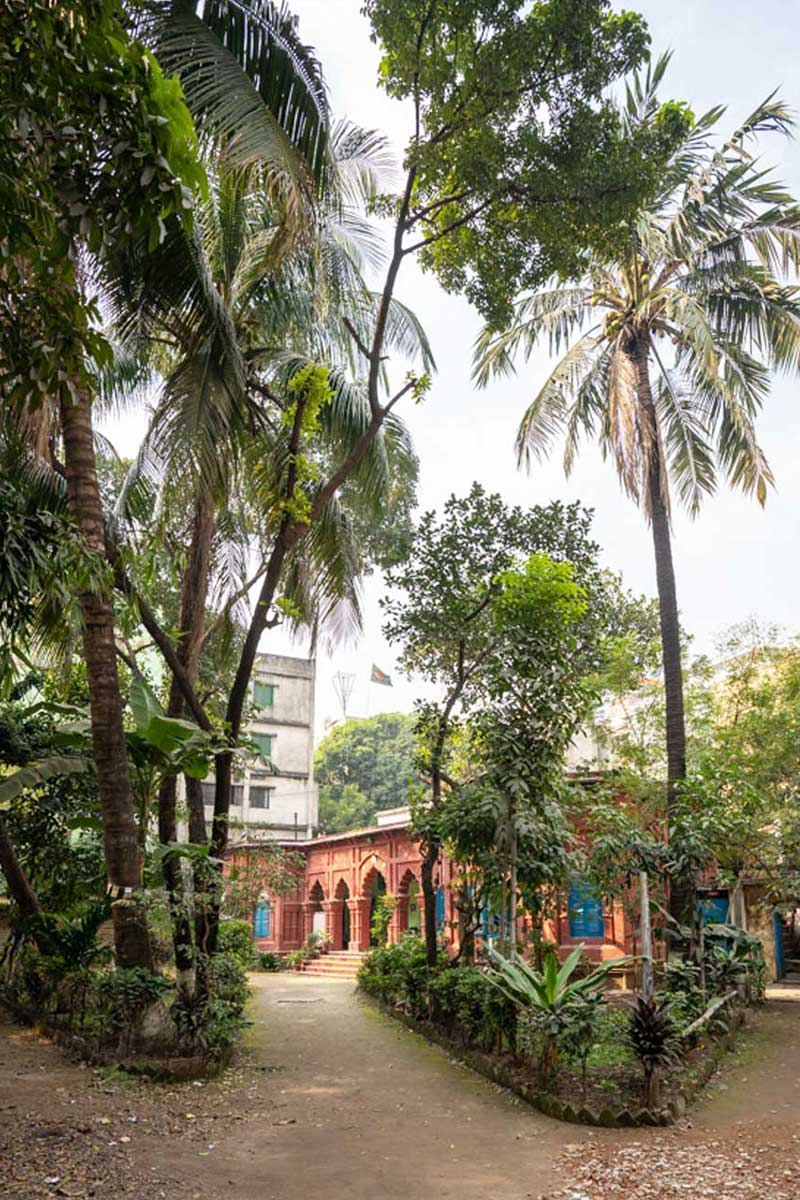
Haturia House
Known as ‘Baghbari’ ("tiger house"), this house is located in the dense urban fabric of old Dhaka. The famous Sat Rawja
mosque is on the south, while on the east side is the busy Abul Hasnat Road with its shops and restaurants.
Built around the 1920s, the house is also called ‘Haturia House’ named after the zamindari area in southern Bangladesh
where the family had an estate. The owner and builder of the house was a member of the then Indian Civil Service, and a
prominent member of the old Dhaka elite. The property was designated as a waqf estate with the grandson of the original
owner as “muttawali”. The house with its compound and the original owning family with a rich history retains much of the
flavor of old Dhaka as it was about hundred years ago.
For more details please visit: https://hiddenheritage.org/haturia-house
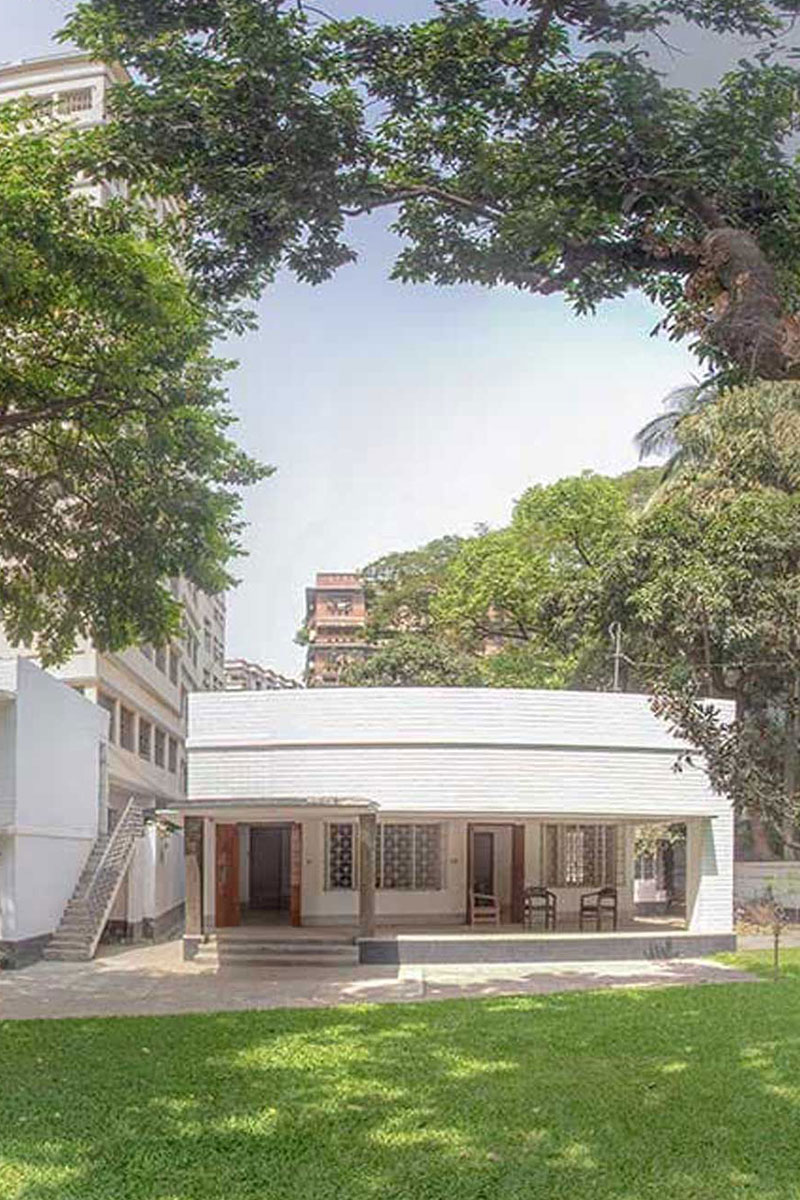
Asaf Khan House
In a sparsely populated Dhaka of the 1960s, this one storied residence in Dhanmondi was built to provide an enhanced
quality of life to its residents. Built as a bungalow-type house facing a green lawn and a spacious porch on the south,
it was evidently designed to let the occupants connect the indoors with the outdoors, through the lawn, surrounding
greenery and ambient environment. The house remains as a rare example of a bungalow type house from the past while the
surrounding landscape has transformed immensely due to construction of multistoried apartments.
For more details please visit: https://hiddenheritage.org/asaf-khan-house
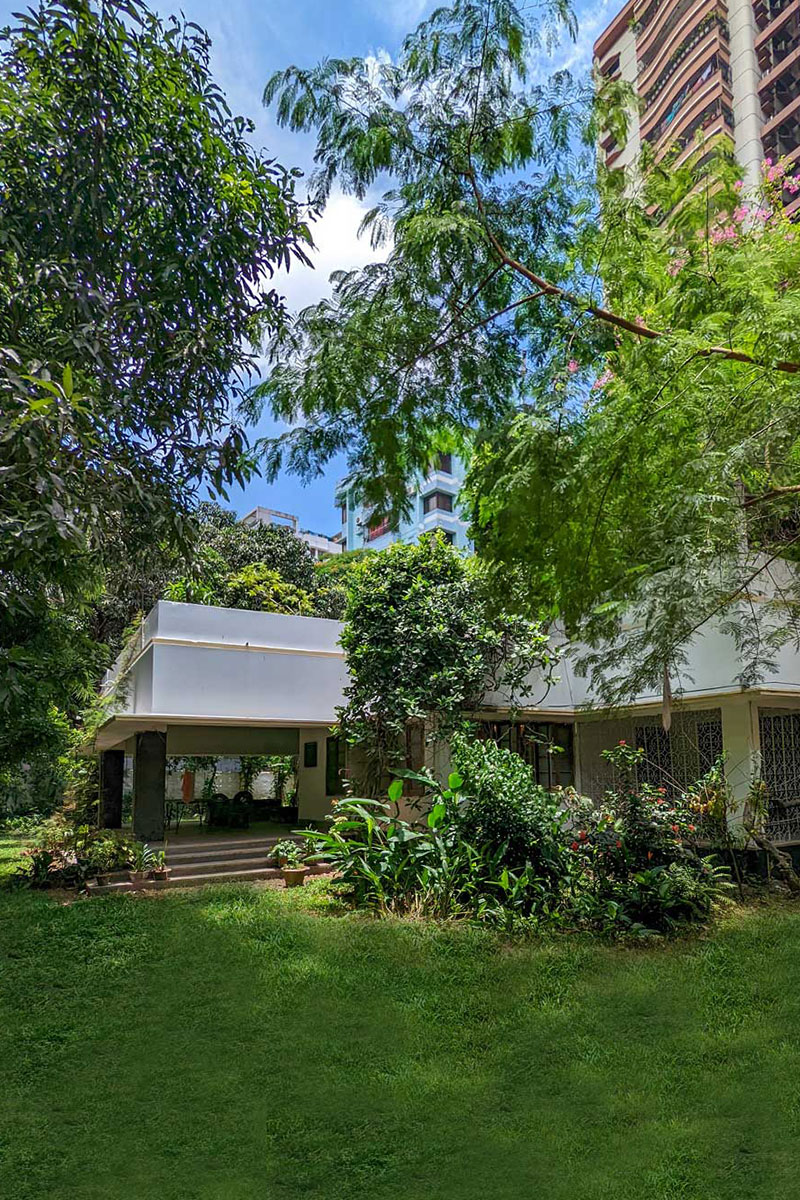
Rajshahi House
The house is expressive of a modern language adapted to the tropical climate and requirements of Dhaka. Typical of
houses for the upper middle class who were serving a new government in the 1950s and have started to live in newer parts
of Dhaka, the house represents the beginning of a new residential type and lifestyle. Today, the building is a quiet
hidden residence in the midst of overwhelming high rise buildings. The Rajshahi House is distinctive for its openness
and connection to the surrounding landscape. Designed by Arjun Roy, an architect from Calcutta, the house was built in
1957 for the family of Murtaza Reza Chowdhury, a well-known political personality who was a member of the Bengal and
Pakistan Assembly and state minister in the central government of Pakistan.
For more details please visit: https://hiddenheritage.org/rajshahi-house
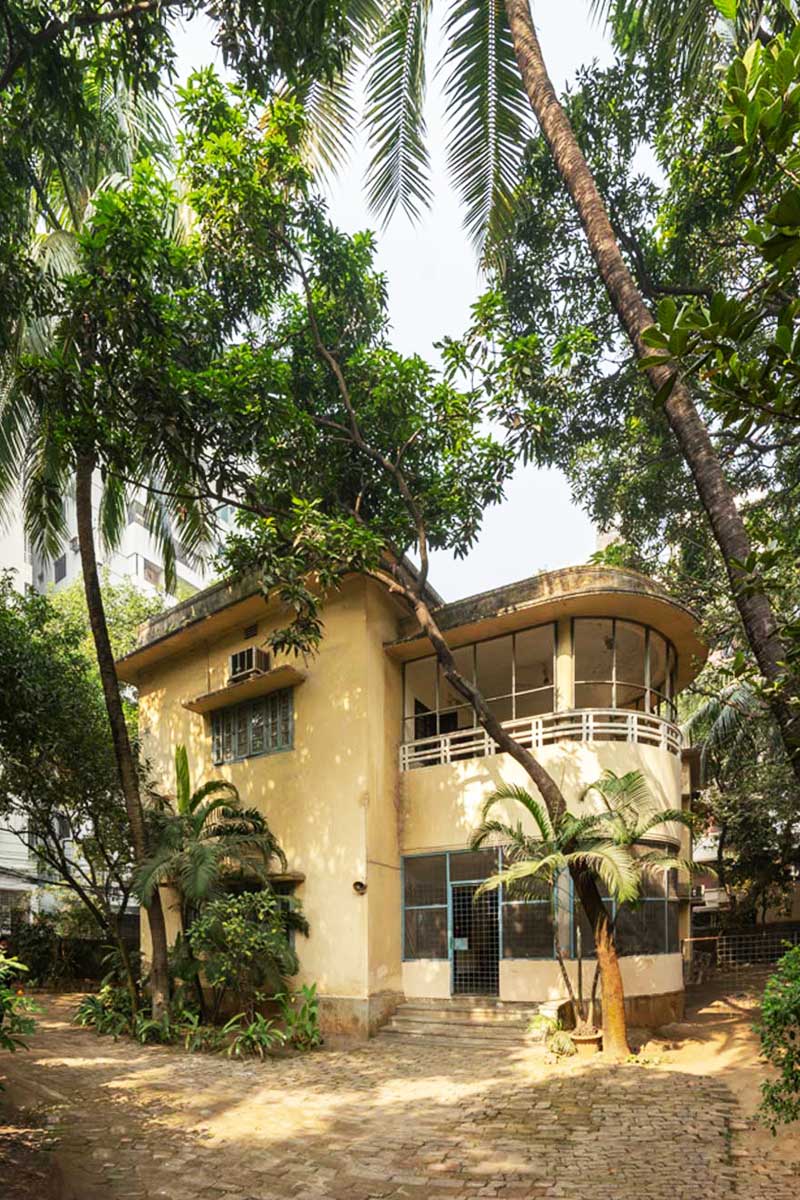
Kabir House
Kabir House is one of the few private properties built in the early 1950’s, amidst the government housing and staff
quarters on Eskaton Road. Placed in between a large lawn on the south and a orchard in the north, the asymmetrical
looking house was designed to accommodate a large family on two floors with spacious verandahs and common spaces. After
the 1960s, the house was developed to accommodate a growing family. Remained unused for years, the appeal surrounding
the house is withering, just like the house itself. And yet, Kabir House still remains as a place that is enriched by
the past memories of its inhabitants.
For more details please visit: https://hiddenheritage.org/kabir-house
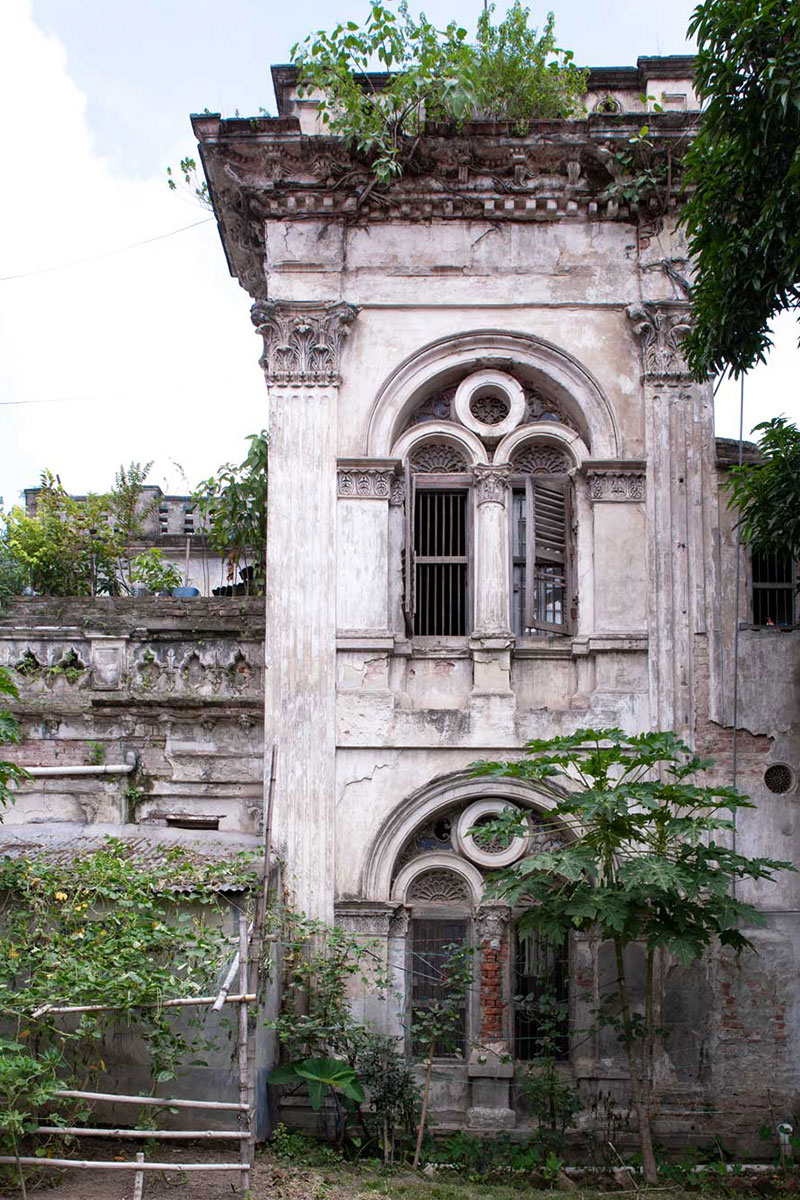
Revati Mohan Das House (Old Part)
An elaborate mansion on the banks of the former Dholai Khal in Sutrapur area, the Revati Mohan Das Lodge represents a
special type of house built by the wealthy citizens of early 20th century Dhaka. With the first house built in 1900 in a
neo-Classical architectural style by the rich businessman Revati Mohan Das, and extended with a second house in 1942 by
the son Hemendra Kumar Das, the Revati Mohan Das Lodge is now a noteworthy heritage building. The owners of the house
played an illustrious role in the political and economic life of the city. The elder Revati Mohan Das was a successful
businessman who dealt in investment and various enterprises and contributed to numerous philanthropic projects in the
city. Revati Mohan’s son Satyendra Kumar Das was the chairman of Dhaka Municipality for two terms, and younger son
Hemendra Kumar Das was the mayor of Mymensingh Municipality for a number of years.
For more details please visit: https://hiddenheritage.org/revati-mohan-house

Revati Mohan Das House (New Part)
An elaborate mansion on the banks of the former Dholai Khal in Sutrapur area, the Revati Mohan Das Lodge represents a
special type of house built by the wealthy citizens of early 20th century Dhaka. With the first house built in 1900 in a
neo-Classical architectural style by the rich businessman Revati Mohan Das, and extended with a second house in 1942 by
the son Hemendra Kumar Das, the Revati Mohan Das Lodge is now a noteworthy heritage building. The owners of the house
played an illustrious role in the political and economic life of the city. The elder Revati Mohan Das was a successful
businessman who dealt in investment and various enterprises and contributed to numerous philanthropic projects in the
city. Revati Mohan’s son Satyendra Kumar Das was the chairman of Dhaka Municipality for two terms, and younger son
Hemendra Kumar Das was the mayor of Mymensingh Municipality for a number of years.
For more details please visit: https://hiddenheritage.org/revati-mohan-house